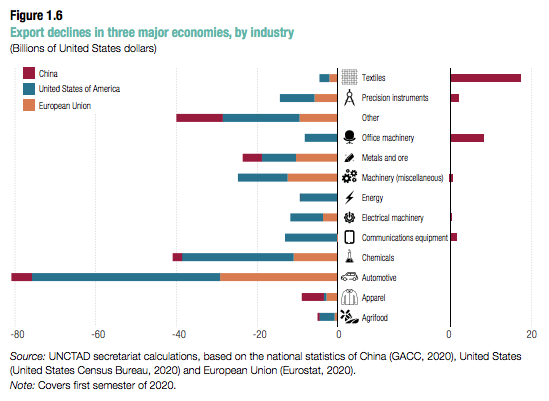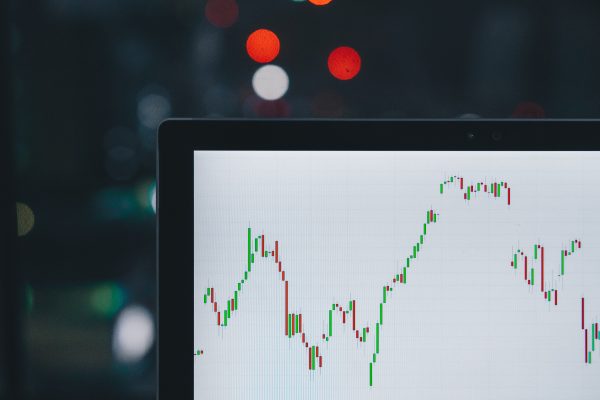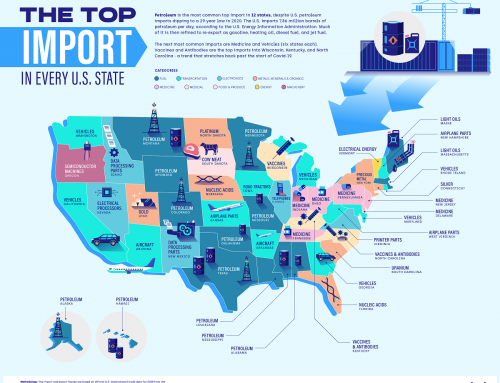In a special report by an interdivisional team at United Nations Conference on Trade and Development (UNCTAD), they provide a synthesis on the substantive analysis and dialogue undertaken by the team at UNCTAD. This research, of course, was rooted in a desire to bring light to various obstacles as well as outline a path forward — economically.
Firstly, the report provides clear benchmarks for expectations of recovery for the global economy, as well as areas in which (both positive and negative) trends were accelerating trade through the pandemic. While we did see an unprecedented collapse in the health of trade globally in 2020, trade will be a critical driver for economic health in 2021 and beyond. As UNCTAD reports:
“The question is how countries can best balance the speed and the magnitude of recovery, with the aspirations of achieving inclusiveness and sustainability of socioeconomic growth.”
Below, you’ll be able to see the declines in 3 major economies, including the United States, in 2020.

We can see that there are some pretty intense declines in automotives and chemicals across the regions. But China actually saw a small boost in textiles, office machinery, precision instrumentation, and communications equipment trade.
Recommended trade policies for stronger recovery
We’ve noted that nations that utilize trade policies in their favor will contribute heavily to the resilient and speedy return of the private sector’s economic vitality. There is a 3 pronged approach recommended for stronger economic recovery. As UNCTAD puts it: “a recovery package”.

Transparency: it contributes to restoring trust in the nation’s rule-based trading framework. In fact, it has been found to reduce trade costs and increase trade by 20-25%. Further to this, transparency has increased in importance in regards to non-tariff measures during the pandemic.
Cooperation: or “compliance” in regulations can help reduce trade costs, while ensuring that these goods are of high quality and safe for consumption. Cooperation and compliance has been proven to lower trade costs at a rate of 25% — lowering consumer prices as well.
Making the best of the existing multilateral trade system: in the context of the World Trade Organization’s General Agreement on Tariffs and Trade (WTO), which allow export restrictions to prevent shortages of essential goods. However, the rules are not currently used in tandem with any kind of provisions that seek to decrease the impact of such measures on vulnerable countries. Such a provision could help import-depending countries with a safety net.
—
At its core, trade is a really important piece of the puzzle for helping nations prosper while recovering from the impacts of the pandemic. UNCTAD recommends a full-fledged recovery package for building a stronger, fairer, inclusive, and greener economy. Of course, these are simply recommendations. It is important that our governing bodies (in our case, CBP) consider these recommendations in order for US importers to fully benefit.
Staying apprised of these types of regulations, whether or not they fully implement UNCTAD’s recommendations, is critical for the health of importers in the US. It is ideal that importers seek to partner up with experienced customs brokers that, by definition, must stay informed on regulatory shifts. Working with a broker can help importers clear US customs faster, easier, and more affordably.
To start a conversation with a broker, click here.



